Events

Career Lessons from Sustainability Leaders – Get Inspired!
On Tuesday 3rd December 2024, EMEA Recruitment was proud to partner with some of the most prestigious businesses in Europe for a webinar on Career Lessons from Sustainability Leaders.
This highly anticipated event brought together expert leaders from Ingka Group (IKEA), HEINEKEN, and Philips to share their unique career journeys, chaired by Claire McDonald, an experienced ESG and Finance Consultant.
Designed for those considering a career in Sustainability or ESG (Environmental, Social, and Governance), this webinar explored how these leaders made the leap from a variety of backgrounds. They also shared the ways they continuously make an impact in some of the most reputable businesses in Europe.
Meet the panel
- Paulien Eckhardt has worked in sustainability since 2008. She is currently the Global Head of ESG Reporting at Ingka Group (The largest IKEA franchisee, with IKEA retail operations in 31 markets, together with sizable Shopping Centre and Investments businesses). In this role, she works to ensure that ESG reporting becomes an integral part of driving business to realize its purpose. Before joining Ingka Group, Paulien led ESG strategy at KPMG Netherlands, working with multi-national companies across Europe and beyond and helping boards to define integrated sustainability strategies that drive holistic value.
- Olga Smirnova is the Audit Director of the Internal Audit Department at HEINEKEN. Previously, she was responsible for sustainability reporting at HEINEKEN for almost seven years, preceded by over 15 years of experience in internal and external assurance, risk management and governance. She started her career as a financial auditor, followed by roles in internal audit departments of large multi-nationals, responsible for audits in the areas of supply chain and sustainability. A few months ago, she moved back to HEINEKEN internal audit, to continue looking at sustainability reporting and governance process from the audit angle. Olga is co-chairing ESG working groups of the Dutch Accounting Standards Board (RJ) and the Finance Executive Association (FEA), and is a member of ESG working groups of the European Roundtable of Industrialists (ERT) and the World Economic Forum (WEF).
- After finishing his MBA in 1990, Simon Braaksma started his career with Citibank, where he held various management roles. In 1998, Simon moved to his largest customer, Philips, in Treasury. He then joined a large finance transformation project and worked in Group Control before joining Group Sustainability in 2008. At Group Sustainability, Simon is responsible for all internal and external ESG disclosures, the relationship with ESG investors and Philips’ climate action program. He also represents the Netherlands on EFRAG’s Sustainability Reporting Board (advisory group to the European Commission on for example the European Sustainability Reporting Standards), and chairs various ESG working groups.
Earlier this year, we were proud to host an interactive roundtable on ESG Impact: Challenges & Opportunities in partnership with ESGNext in Switzerland. If you’re interested in hearing more about our upcoming events, please get in touch with [email protected]
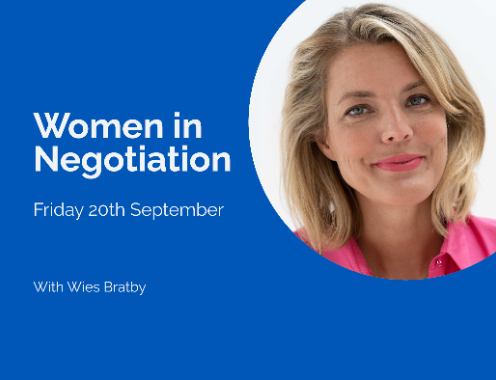
Women In Negotiation: Career Empowerment Webinar
On Friday, 20th September, EMEA Recruitment hosted an online webinar focused on empowering women to better navigate their careers and negotiate salaries that truly reflect their worth. Delivered in partnership with the highly sought-after keynote speaker and workshop trainer, Wies Bratby, the session aimed to equip attendees with the confidence and tools necessary to proactively build their careers.
Wies, who has collaborated with renowned global brands like Amazon, Google, and Booking.com, guided participants in exploring what holds them back from career advancement. Through insightful discussions on mindset shifts and practical strategies, attendees learned how to remove barriers and engage in meaningful career conversations with their managers.
The event also featured an interactive Q&A co-hosted by our Client Development Director, Michelle Ewing, allowing participants to gain valuable advice tailored to their individual journeys.
In May 2020, Wies joined Paul Toms on the EMEA Recruitment Podcast, where they discussed topics such as her motivation for starting Women in Negotiation, her passion for negotiation, the importance of taking action, working with gender stereotypes, and the mantra “bring the data, not the drama." To listen to the episode, click here.
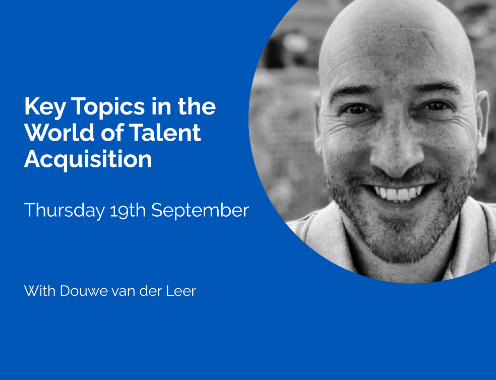
Key Topics in the Word of Talent Acquisition
On the evening of Thursday, 19th of September, we gathered TA professionals across the Netherlands for an exploration into the future of Talent Acquisition.
The event featured guest speaker and seasoned TA leader, Douwe van der Leer.
Douwe shared his vision for the future of TA, drawing on his vast experience with innovative scale-ups like Lucid Motors and Backbase, as well as established companies such as Foot Locker and Securitas.
Attendees explored current trends, shared challenges, and exchanged ideas with fellow TA professionals in breakout groups to enable focused conversations.
Themes of discussion included AI & Automation, DE&I, TA metrics and common KPIs.
Key highlights for your notebook:
- The recruiter’s role is evolving from transactional to strategic, focusing on true business partnership.
- AI will drive automation, but success lies in creating personalised, memorable candidate experiences.
- Hidden talent markets may emerge as more people opt out of social platforms, posing new challenges.
The evening wrapped up with informal networking over drinks.
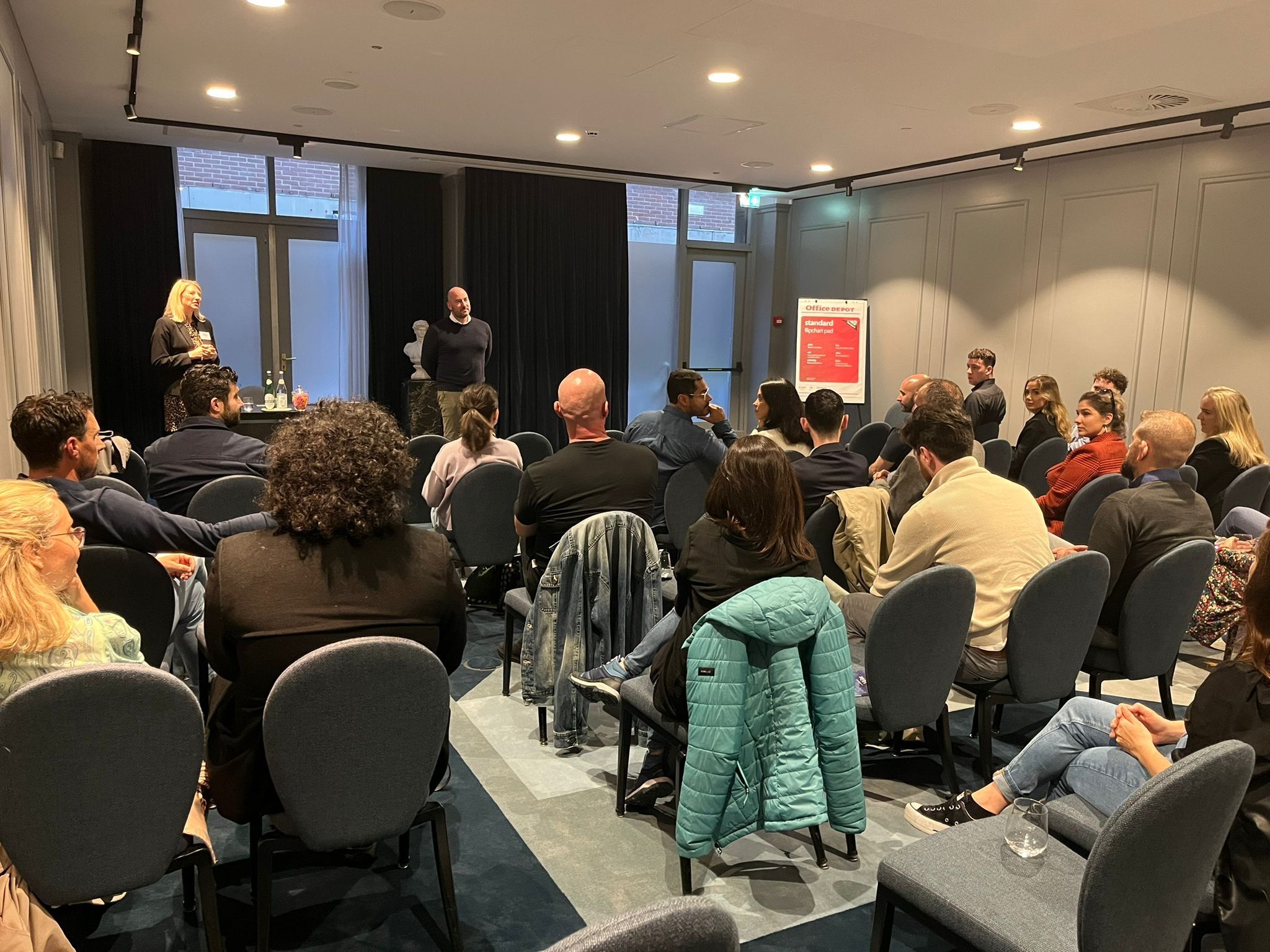
If you'd be keen to attend similar events, tailored for TA professionals, please reach out to Director of our Dutch HR recruitment team, Katie Insley, who will keep you up to date at [email protected]
This event has held at Amsterdam's De Witt Hotel, and we strive to host such events in central Amsterdam locations to allow those far and wide to attend.
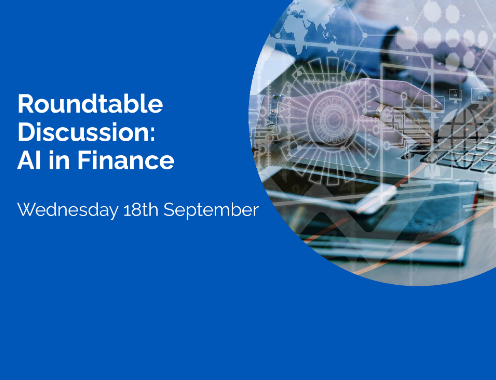
Roundtable Discussion: AI in Finance
In the financial sector, AI is not only enhancing efficiency and accuracy in tasks like forecasting, resource allocation, and decision-making, but also empowering finance leaders to unlock new insights and opportunities from data.
In light of this current trend, EMEA Recruitment invited a select audience to an exclusive roundtable on Wednesday, the 18th of Septemeber, to unpack the complexities of AI in Finance, with reference to real-world applications.
Designed with the C-Suite Finance audience in mind, the session primarily focused on the ways in which AI can be leveraged to transform the financial planning process and drive success.
Facilitating the conversation alongside the EMEA recruitment team (Hannah Mallia, Georgia Wright, and Tom Hodgett) were two leaders* in Finance.
Each of our chosen leaders, spearhead the following coversation topics during the deep dive discussion:
- Leader 1: Scoping, stakeholder alignment, skill requirements and avoiding common pitfalls in forecasting projects.
- Leader 2: POC setup, scalability, and domain selection, discussing critical success drivers for revenue & sales, accounting & cashflow, or S&OP/resource planning.
Below is a summary of the key points raised during the exploration:
- Participants emphasised that AI is not just for automation but is increasingly relevant in decision-making. CFOs should integrate AI into financial forecasting and risk management to enable more accurate, less biased predictive models and improved scenario planning.
- The importance of data quality in AI implementation was highlighted, with companies often underestimating the need for clean, well-structured data as the foundation for successful AI systems. CFOs were encouraged to invest in enhancing their data infrastructures before expecting results from AI.
- The need for ethical AI usage in finance was also addressed. As AI becomes more prevalent, ensuring transparency, accountability, and adherence to regulations is critical, especially in sensitive areas such as fraud detection and auditing.
- As routine tasks are automated, CFOs will need to invest in upskilling their teams, focusing on data literacy and strong analytical skills. A successful finance function will require a combination of human skills and AI-driven insights.
- The discussion acknowledged the challenges companies face in adopting AI, such as cost, lack of technical expertise, and resistance to change. However, AI was recognised as a long-term investment that can yield significant returns.
The event also provided an ample opportunity for peer-to-peer networking, which extended throughout the evening.
If you are a C-Suite professional within Finance & Accountancy in the Netherlands and are interested in particiapting in future discussions, please reach out to Director Hannah Mallia who will keep you notified.
*For confidentiality purposes, we are unable to publically name the chosen individuals.

Amsterdam Finance Forum: Breakfast Series for Senior Finance Professionals
With our people-first approach, at EMEA Recruitment, we try to do things differently to engage and add tangible value to our network from our Executive Interviews and podcast series to our events.
As the financial landscape continues to evolve, we know how important it is to stay ahead of the curve, exchanging insights and navigating challenges.
With this in mind, we decied to launch our Breakfast Series - an exclusive opportunity for senior finance professionals to come together, share best practices, and discuss pertinent topics in an informal setting.
These sessions aim to create a collaborative space where industry leaders can engage in meaningful dialogue, exchange ideas, and cultivate valuable connections.
Whether you're keen on exploring emerging trends, grappling with regulatory changes, or seeking innovative strategies to enhance financial performance, these events aim to offer a platform tailored to your professional needs.
- Informal Networking: Enjoy a relaxed atmosphere conducive to building relationships with fellow finance professionals from diverse backgrounds and industries
- Knowledge Sharing: Share your own experiences, insights, and best practices, contributing to the collective wisdom of the group
- Professional Development: Gain fresh perspectives and actionable insights to propel your career forward
Upcoming Breakfast Event: March 2025 in the South region of the Netherlands (Venue TBC).
If you would like to attend or find out more, please contact David Harper, Associate Director - Accountancy and Finance: [email protected]
Previous breakfast networking events:
On June 18th 2024, we hosted the inagural session - a fascinating roundtable discussion on current and future applications of AI in Finance. This lively discussion unearthed valuable insights touching on wide-ranging subjects including the management of diverse stakeholder mindsets and expectations, leveraging AI-generated data for Audit, and the people and skills required to resource AI-enabled teams.
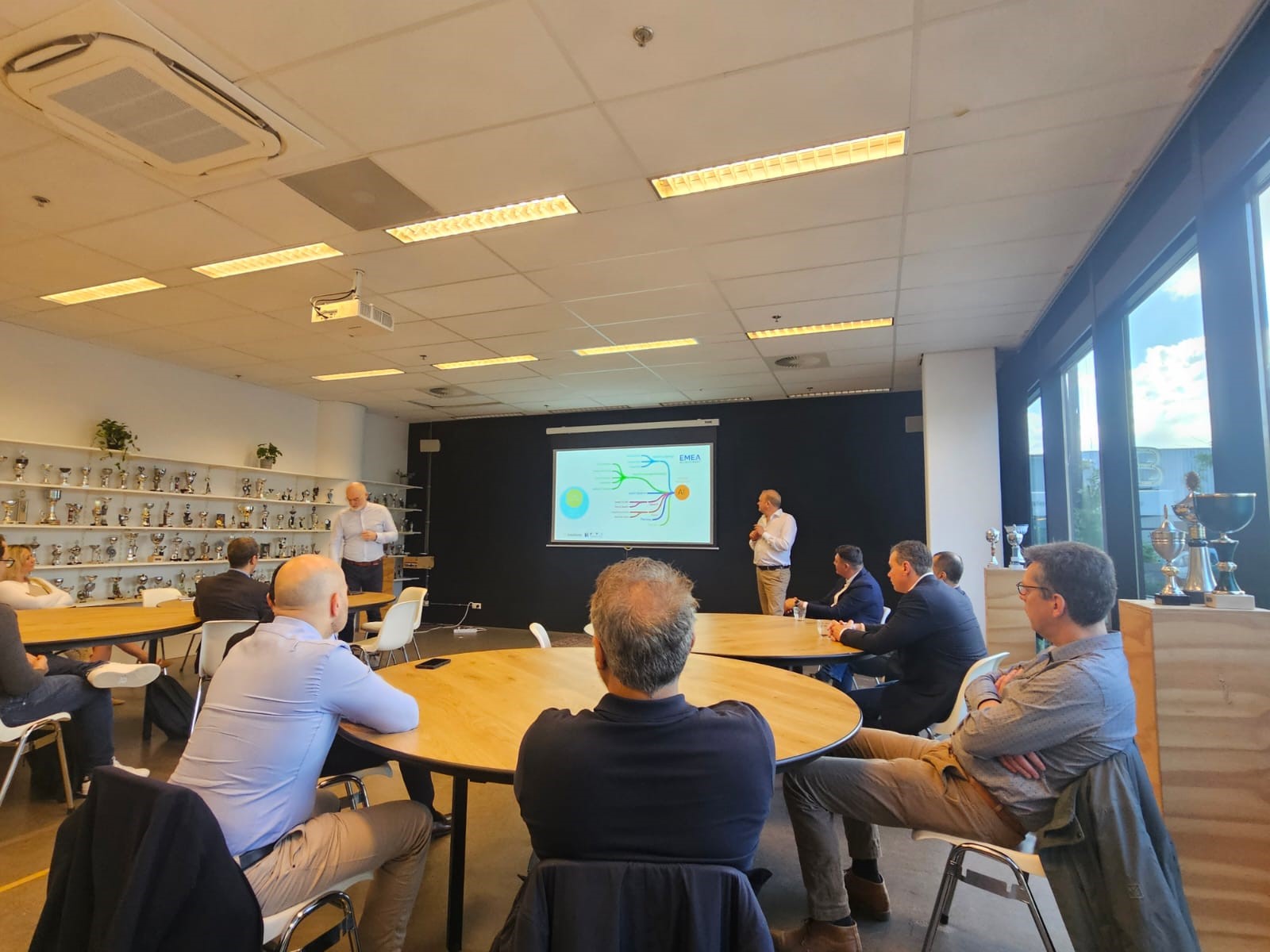
On September 18th and November 6th 2024, we invited Finance leaders to a breakfast networking event in the heart of Amsterdam's business district, widely accessible via public transport. We choose a café to allow for a relaxed, informal atmosphere.

If you would like find out more about our breakfast series, please contact Georgia Wright, Director - Accountancy and Finance: [email protected]
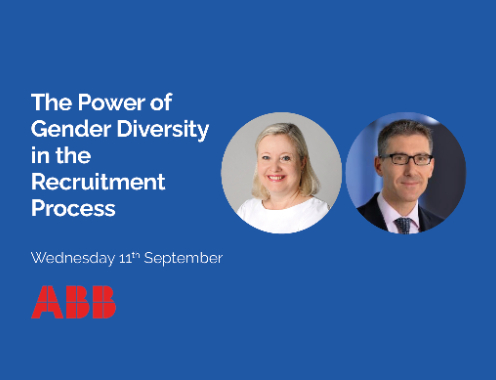
The Power of Gender Diversity in the Recruitment Process
Building on the success of our popular Talent Acquisition Roundtable events, EMEA Recruitment were delighted to host the fourth instalment of the series on Wednesday, September 11th, 2024.
The subject for this edition was The Power of Gender Diversity in the Recruitment Process, presented in partnership with pioneering tech firm, ABB.
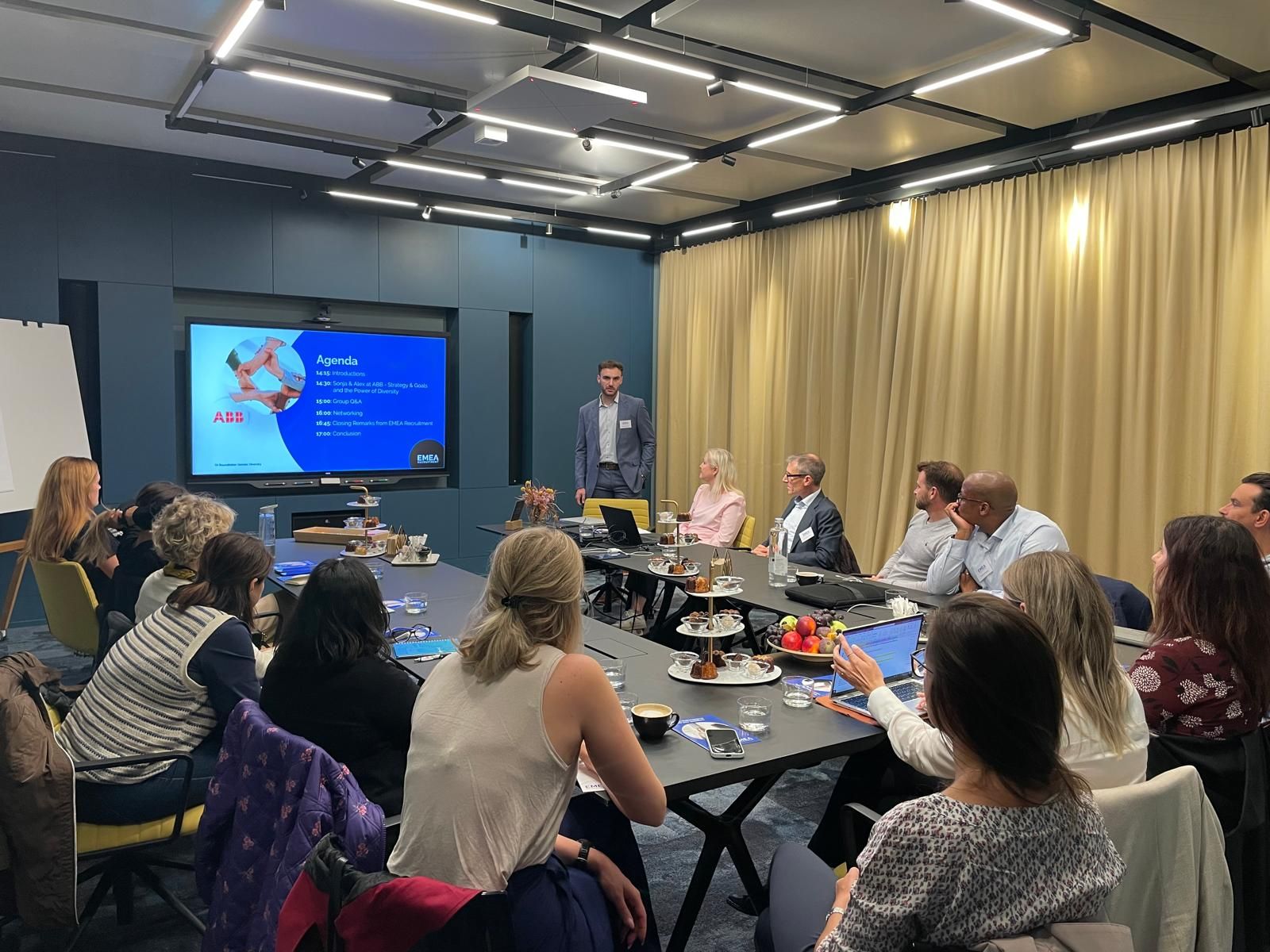
Corporate Talent Partners, Alexander Davies and Sonja Burgherr led a wide-ranging discussion to include ABB's resourcing initiatives and insights into the impact of female leadership across industry sectors.
"A culture of diversity, inclusion, and equal opportunity is critical to our business success and makes us stronger."
The group explored ABB's case study in detail whilst encouraging an in-depth open discussion, before ending with a valuable informal networking opportunity. Below you'll find a concise summary of the insights shared:
ABB Global Initiatives
Female Mentoring Program
- This year-long mentoring and development program, in place for five years, is designed to develop, strengthen, retain, and track the female talent pipeline both globally and regionally, helping mentees progress into senior leadership roles.
Gender Neutral Parental Leave Program
- An 18-month postgraduate program focused on Women's Leadership
Shadow a Woman Leader (Vedica Scholars - US based)
Unconscious Bias Training
- For all Managers and Talent Partners.
Gender Decoder for Job Postings
- Promotes gender-neutral language.
Commitment to UN Women’s Empowerment Principles
- ABB’s CEO signed a commitment to the UN’s seven core principles for women’s empowerment.
Breastfeeding Rooms: Available at ABB locations
Programmes for the Younger Generation:
Girls on Track – Formula E
- Encourages girls to engage with the engineering industry.
Girl Technology Days:
Goal: Inspire girls about technical careers and apprenticeships.
Activities: Workshops, apprentice experience reports, and a tour of battery production for secondary school students.
Key Insights on Gender Diversity:
Financial Performance
Improved Profitability
According to a McKinsey Report, companies in the top quartile for gender diversity on executive teams are 25% more likely to have above-average profitability.
Revenue Growth
Research by BCG (Boston Consulting Group) found that companies with above-average diversity scores saw 19% higher innovation revenues, thanks to the varied perspectives and ideas by a diverse workforce.
Innovation & Problem Solving
A Harvard Business Review study revealed that diverse teams are better at anticipating shifts in consumer needs and consumption patterns, leading to higher market share and the discovery of new markets.
Employee Satisfaction & Retention
Higher Employee Engagement
A Gallup study concluded that gender-diverse business units experience higher employee engagement, contributing to better performance outcomes and lower turnover rates.
Inclusive workplaces that prioritise gender diversity tend to have employees who feel more valued and supported, leading to increased job satisfaction and loyalty. Some studies indicate that this can improve employee retention rate by as much as 5.4 times.
Reduced Turnover Costs
The Centre for American Progress reports that replacing an employee can cost up to 21% of their annual salary. Companies with gender diversity and inclusive policies experience lower turnover rates, leading to significant savings on recruitment and training costs.
To be notified of future editions or similar events in the TA space, please don’t hesitate to reach out to Drew Larcombe in our Swiss HR recruitment team who will keep you informed.








You can also use your social account to sign in. First you need to:
Accept Terms & Conditions And Privacy Policy